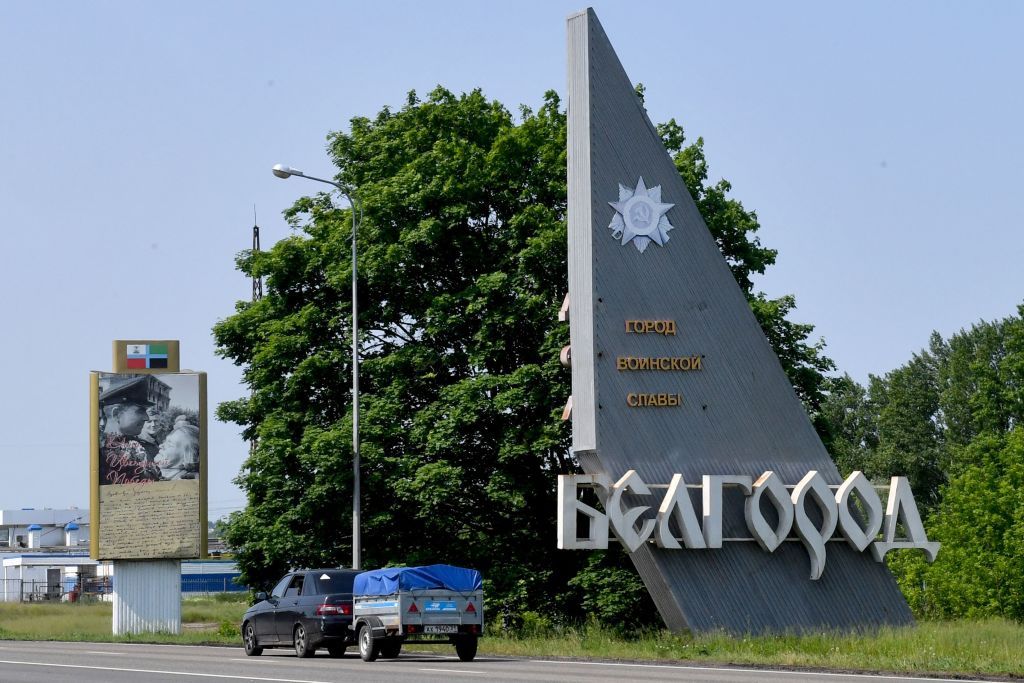Russian air defense systems successfully thwarted a Ukrainian attack over Belgorod and Yaroslavl oblasts, as claimed by Russian authorities on March 31. The Defense Ministry reported that three Ukrainian drones were destroyed over Yaroslavl Oblast, while 10 rockets allegedly launched by Ukraine were downed over Belgorod Oblast. Belgorod Oblast Governor Vyacheslav Gladkov stated that the attack resulted in injuries to a woman and damage to 18 homes, as well as power and water supply lines in the region. These incidents have become more common following anti-Kremlin Russian militias’ incursions into the border areas of Ukraine.
Ukrainian authorities have not provided any comments on the alleged attacks, and The Kyiv Independent could not independently verify the Russian authorities’ claims. Belgorod Oblast shares borders with Ukraine’s Sumy, Kharkiv, and Luhansk oblasts, making it a potential target for such attacks. Earlier in March, Gladkov reported that a Ukrainian drone had struck an administrative building in Belgorod. The recent incidents have heightened tensions in the region, as both sides engage in warfare tactics along the border.
A spokesperson for Ukraine’s military intelligence, Andrii Yusov, disclosed that the recent incursion into Russia by anti-Kremlin militias disrupted Moscow’s plans for a potential new attack in Ukraine’s northern sector. This event led to a change in Russia’s strategies and forced them to reassess their military plans in the region. The ongoing conflict between Ukraine and Russia has resulted in several instances of cross-border attacks and incursions, further escalating the situation and creating a volatile environment in the border regions.
The intervention of Russian air defense systems in response to Ukrainian attacks highlights the precarious nature of the conflict and the increased potential for escalation. Both sides continue to engage in military actions, further endangering the residents of the border areas and exacerbating the humanitarian crisis. The lack of official comments from Ukrainian authorities signifies the complex diplomatic and strategic implications of these attacks, as tensions between the two countries remain high. The role of independent journalism in reporting on these incidents is crucial in providing accurate information and analysis to the public.
The ongoing conflict between Ukraine and Russia has far-reaching implications for regional stability and international relations. The involvement of anti-Kremlin militias in cross-border attacks adds a new dimension to the conflict, complicating the already tense situation. The need for a diplomatic resolution to the conflict is paramount, as continued military actions only serve to heighten tensions and increase the risk of further escalations. The role of independent journalism in documenting and reporting on these events is essential in informing the public and holding all parties accountable for their actions.
Supporting independent journalism in Ukraine is crucial in promoting transparency, accountability, and accuracy in reporting on the ongoing conflict. By joining the fight for independent journalism, individuals can help shed light on the complexities of the situation and ensure that accurate information is shared with the public. As the conflict continues to unfold, it is imperative that unbiased and reliable sources of information are available to provide a comprehensive understanding of the events and their implications. Together, we can support independent journalism and contribute to a deeper understanding of the conflict in Ukraine.


